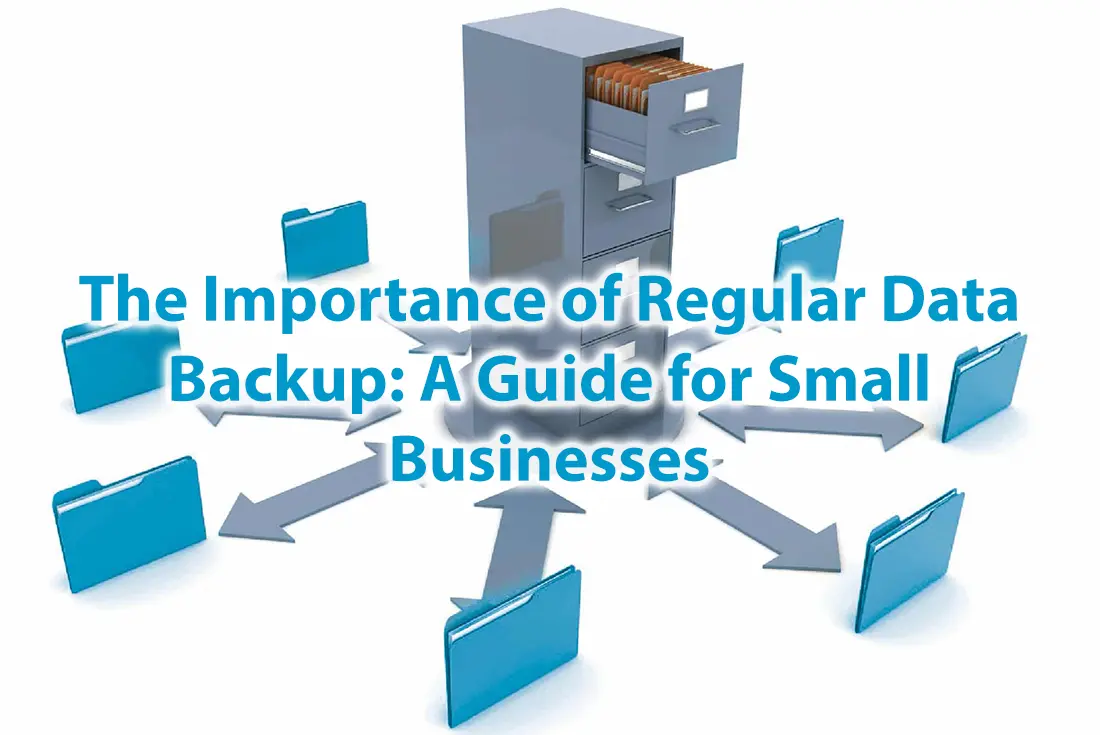
08 May The Importance of Regular Data Backup: A Guide for Small Businesses
Imagine losing all your customer records, financial data, or years of project files in an instant. That’s the nightmare scenario businesses face without a solid data backup and recovery plan. In today’s digital world, your business relies on data more than ever. Yet, many small businesses underestimate the risk of data loss, leaving themselves dangerously exposed.
Let’s explore why data backup is a must-have for any business and how you can safeguard your most valuable digital assets.
Understanding Data Backup
Backing up data is the process of making copies of your important business information and storing it safely. It’s insurance – if something happens to your original files, you can get them back. But why should you care about backup? Well, computers break, hackers attack, and accidents happen—those things can all lead to data loss.
There are a few ways to back up your data. Local backups mean storing copies on external hard drives or on computers at your workplace. Cloud backups store your information on secure internet servers. For ultimate protection, offsite backups involve storing copies at a completely different location, safe from disasters that might affect your main office.
The right method for you depends on your business and the type of data you need to protect.
Risks of Data Loss for Small Businesses
Small businesses may think they’re immune to data disasters, but the reality is quite different. Data loss can strike any business, regardless of size. Let’s take a look at what’s at stake.
Financial Losses
Data loss doesn’t just mean lost files; it means lost income. If you can’t access customer records, you may be unable to process orders or bill clients. Downtime due to data recovery can cripple your cash flow. Additionally, the cost of recovering lost data can be surprisingly high, especially if you need specialized data recovery services.
Reputational Damage
Your customers and partners trust you with their sensitive information. If that data is lost or compromised in a breach, it seriously damages their confidence in your business. Recovering from that kind of reputational hit can take a long time.
Legal Implications
Many industries have strict regulations regarding data protection. If you lose customer data, especially sensitive information like financial or health records, you could face fines, penalties, or even lawsuits for failing to meet your compliance obligations.
Operational Disruption
Businesses rely on data for everything from daily tasks to long-term decision-making. Losing access to critical files can grind operations to a halt, causing missed deadlines, frustrated customers, and a cascade of problems that take time and resources to fix.
Lost Competitive Advantage
Your business data may contain valuable insights and trade secrets. If this information falls into the wrong hands or is simply wiped out, you could lose your edge over competitors.
Downtown Computer Services is the best data backup and recovery service provider in Fort Lauderdale. We analyze your current business environment, assess all potential risks and provide a detailed plan that will help you sustain operations during all kinds of emergencies and successfully recover afterwards. Call us today at (954) 524 9002 and let’s prepare your business for an unforeseen event.
Benefits of Regular Data Backup
Imagine an unexpected event that wipes out your data. With robust backups in place, you can quickly restore your systems and get back to business, minimizing downtime and the ripple effects it can have on your customers.
But it’s not just about quick recovery. Disasters, from natural calamities to cyberattacks, can strike at any time. Backing up data is your lifeline in these situations, allowing you to rebuild and recover your critical information. Furthermore, backups enhance your overall cybersecurity posture. If you fall victim to ransomware, clean backups let you mitigate the attack rather than being held hostage by cybercriminals.
Many industries also have strict regulations regarding data protection. Regular backups demonstrate your commitment to compliance, helping you avoid costly fines or reputational damage. And perhaps most importantly, backup gives you, the business owner, invaluable peace of mind. You have enough on your plate – knowing your data is safe lets you focus on growing your business without the constant worry of catastrophic data loss.
Best Practices for Data Backup
Implementing a reliable data backup system doesn’t need to be complicated or overly expensive. Here are some best practices to ensure your data is protected.
Identify Critical Data
Start by figuring out the most important data for your business to run. This likely includes customer information, financial records, project files, and any special documents or software you rely on.
Choose the Right Solutions
Think about your budget, how much data you need to protect, and how important security is. Cloud backup services are often easy and affordable for small businesses. If you have very sensitive data or need faster recovery times, local backups (like external hard drives) might be a good addition. Look for solutions that offer encryption to protect your data while it’s being stored.
Automation is Key
Don’t leave your backups to chance! Set up automatic backups that run on a schedule. Most backup services let you do this easily, and it’s essential for keeping your data safe.
Test Your Backups
Just because you’re backing up data doesn’t mean you’ll be able to get it back when you need it. Make it a habit to regularly test that you can actually restore files from your backup system.
The “3-2-1” Rule
This is a good rule of thumb for extra protection: Have 3 copies of your data, stored on 2 different things (like a hard drive and the cloud), with at least 1 copy kept somewhere else entirely.
Implementing a Data Backup Plan
Now, let’s roll up our sleeves and create a data backup and recovery plan tailored to your business. This plan will help you protect your hard-earned data, minimize the impact of unexpected setbacks, and give you greater peace of mind. Let’s break it down into manageable steps:
1. Assess Your Needs
Thoroughly identify all the critical data you need to protect. Beyond the obvious like customer information and financial records, don’t overlook website data, email archives, software configurations, or even marketing materials.
Consider how much downtime your business can handle and the potential consequences of different types of data loss. This will help prioritize data and acceptable recovery times.
Determine how much you can reasonably allocate towards backup solutions. Factor in recurring costs for cloud storage and the upfront costs of local storage devices.
2. Choose Tools and Technologies
Research reliable backup software designed for businesses, considering features like encryption, automation, ease of use, and compatibility with your data storage options.
Choose between cloud-based services (consider their reputation, security measures, and pricing tiers), local storage devices (such as external hard drives or NAS devices), or a hybrid approach.
For ultimate disaster protection, explore offsite data storage solutions. This could be a cloud service geographically distant from your primary location, or physical copies stored safely in a different building.
3. Backup Schedule
Determine how often to back up (daily, hourly, etc.), based on the sensitivity of your data and how regularly it changes. Critical information that’s updated often might need near real-time protection.
Decide how long you need to keep backup copies. Factor in any regulatory requirements, as well as a balance between long-term recovery options and storage space.
4. Test and Monitor
Don’t wait until disaster strikes! Schedule regular tests of your ability to restore data from different backup points.
Proactively check backup logs to ensure your backups are running successfully and on schedule. Some services offer email alerts if backups fail.
Finally, here’s yet another couple of basic pieces of advice. Clearly outline your backup procedures, who’s responsible for what, and your recovery protocols. Update this document regularly as your business or data needs change.
Educate your team on the importance of backing up data, why it matters, and any basic security practices regarding data handling.
If your business has complex data requirements, or you lack the in-house resources, consider partnering with a data backup and recovery service provider for tailored solutions and support.
Conclusion
Today, your business relies on data more than ever before. Losing that data—whether to hackers, broken hardware, or simple mistakes—can be costly and disruptive. A good backup plan is like insurance for your business. It helps you recover quickly and protects everything you’ve worked for.
Don’t wait until it’s too late. Proactive data backup should be at the heart of how you run your business. Call Downtown Computer Service now: (954) 524 9002 to protect your data!
Check out other relevant news
- How Easy-to-Use Hacking Tools Are Fueling Cybercrime
- Cryptocurrency Security for Small Businesses: Protecting Your Wallet
- The Infostealer Epidemic: Protecting Your Business from the Latest Wave of Cyberattacks
- The Identity Crisis: How Compromised Credentials Can Cripple Your Business
- Beyond the Brick and Mortar: Building Your Online Storefront with Digital Marketing
